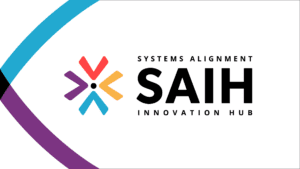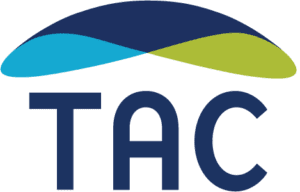How Communities Can Draw on Lived Expertise to Prevent and End Youth Homelessness
Through a multiyear contract with the California Interagency Council on Homelessness, TAC is helping communities build capacity to support youth who are experiencing or at risk of homelessness. TAC staff and partners provide direct technical assistance to local communities in the state’s Homelessness Housing, Assistance and Prevention grant program, meeting each one “where it’s at”; activities range from helping a county redesign its coordinated entry system with a youth focus, to reviewing and analyzing data on the demographics of youth experiencing homelessness in a given community.
As part of this engagement, Téo Ortega worked with Youth Collaboratory and independent contractor Lauren Leonardis to assemble a group of youth and young adults with lived experience to share their subject matter expertise. Together, this group — André Thomas, Dahsuri Togi, Liam Spady, and Phoebe Ricker — created and facilitated the Launch Pad video series to help communities launch and sustain Youth Action Boards. These lively videos offer tips and insights on engagement, structure, goals, and strategies for an effective YAB that is fully incorporated into a community’s efforts to end youth homelessness, while building a foundation for YAB members’ long-term educational and professional success.
A Call to Reduce Overdose Deaths by Combining Harm Reduction with Other Proven Approaches
The surge in overdose deaths taking place in our country — propelled by the spread of fentanyl and chemically altered methamphetamine, and exacerbated by the challenges of the COVID pandemic — has been devastating among people experiencing homelessness. In three new resources, Francine Arienti, Rebecca Boss, Laura Conrad, LaMont Green, and Rachel Post call for providers and policymakers to meet the demands of this moment by combining best practices in homelessness prevention with the person-centered principles of harm reduction. Each of these resources makes the case that to both survive the overdose epidemic, and go on to live full and connected lives, people need harm reduction that is paired with culturally responsive supportive housing, recovery supports, and on-demand treatment.
- Policy brief: Boosting the Power of Harm Reduction: Creating a Comprehensive and Culturally Responsive System of Care Serving People Experiencing Homelessness with Substance Use Disorders
- Webinar: Addressing Drug Overdose Deaths: Combined Strategies to Optimize Health, Wellness, and Recovery through a Culturally Responsive System of Care (Created for the U.S. Substance Abuse and Mental Health Services Administration’s (SAMHSA) Homelessness and Housing Resource Center)
- HHRC Fact Sheet: Strategies to Build a Coordinated and Culturally Responsive System of Care for People with Substance Use Disorders who are Experiencing Homelessness
A Systems Alignment Peer Learning Network, plus Free TA & Consultation Services
 The TAC Systems Alignment Innovation Hub (SAIH) is a new nationwide project to help medical, social service, and public health providers in low-income and BIPOC communities dismantle inequities and improve health and well-being for all. Starting on April 25, a SAIH-facilitated Peer Learning Network will meet monthly, offering a forum for organizations to share their systems alignment, implementation, and research testing ideas. SAIH also offers free technical assistance and consultation to help organizations assess and improve the readiness of their ideas for rigorous research testing. Learn more at the new SAIH website!
The TAC Systems Alignment Innovation Hub (SAIH) is a new nationwide project to help medical, social service, and public health providers in low-income and BIPOC communities dismantle inequities and improve health and well-being for all. Starting on April 25, a SAIH-facilitated Peer Learning Network will meet monthly, offering a forum for organizations to share their systems alignment, implementation, and research testing ideas. SAIH also offers free technical assistance and consultation to help organizations assess and improve the readiness of their ideas for rigorous research testing. Learn more at the new SAIH website!
A Stakeholders Roundtable for Section 811 Supportive Housing
Ayana Dilday Gonzalez, Ari Rogers, and Lisa Sloane planned and facilitated an event at HUD’s headquarters in Washington, DC on February 22, to gather input from key partners in supportive housing for people with disabilities through HUD’s 811 Project Rental Assistance program, the 811 capital advance program, and other federal, state, and local funding sources. Participants included disability advocates from the Consortium for Constituents with Disabilities; affordable housing advocates from the National Council of State Housing Agencies and State Housing Finance Agencies; state Medicaid and Health and Human Services officers; developers of affordable housing for people with disabilities; a tenant living in 811 PRA housing; and federal agency representatives from the Centers for Medicare and Medicaid Services (CMS), Administration for Community Living, Department of Justice, Department of Human Services, and HUD. The full-day listening session allowed for engaging conversation on a variety of broad-ranging topics, including meeting the housing needs of people with disabilities; financing; the role of state and local housing and services agencies; best practices in permanent supportive housing (PSH) supportive services; and innovative ideas in integrated supportive housing.
TAC staff in action
Presentations
On April 6, HUD’s Office of Policy Development and Research hosted a Virtual Update on Housing First, with LaMont Green joining a panel about Housing First in Seattle, WA; LaMont also presented on the power of combining Housing First with harm reduction and other supports during a webinar on “How Housing First Serves Veterans and Promotes Recovery”; at the January convening of the Mental Health Matters National Task Force on Workforce Mental Health Policy, Kevin Martone presented to state legislators on behavioral health workforce challenges and solutions in rural communities.
TA & Training
Rebecca Boss & Jordan Gulley are working with the National Academy of State Health Policy on its Behavioral Health Modernization Project, providing TA to four states; Laura Conrad is working with the State of Michigan to address the overdose crisis related to opioids and stimulant use by offering contingency management as a Medicaid benefit; Ayana Dilday Gonzalez, Marie Herb, Matt Leslie, Melany Mondello, Lisa Sloane, Liz Stewart, Emila Sutton, Jim Yates, & subcontractor Erica Snyder recently led a series of virtual and in-person Problem Solving Clinics, as well as providing direct TA, all designed to help communities develop allocation plans for the use of HOME ARP resources – with the impressive result that all communities successfully submitted their plans by the HUD deadline; Jordan Gulley moderated a SAMHSA Homeless & Housing Resource Center webinar on Effective Behavioral Health Crisis Response for People Experiencing Homelessness.
Resources
Rebecca Boss & Jordan Gulley, together with subcontractors Neil Campbell, Victor Capoccia, and Colette Croze, coauthored Optimizing Recovery Funding, Volume 2: Strategies for State Funding of Recovery Support Services; Ayana Dilday Gonzalez, Sherry Lerch, Lisa Sloane, Alicia Woodsby, & Liz Stewart each coauthored resources in the National Low Income Housing Coalition’s Advocates’ Guide 2023: A Primer on Federal Affordable Housing & Community Development Programs & Policies; Dayana Simons is lead author of TA Network Quality Collaborative: Improving the Use of Psychotropic Medication with Youth in Residential Treatment Facilities.
Community
Rebecca Boss accepted an invitation to serve on the Board of Directors for RI Cares, Rhode Island’s statewide recovery community organization.
Staff Transitions
Congratulations to Mayra Pabon, who was recently promoted to become TAC’s Office Manager! We also offer our best wishes and congratulations to outgoing TAC interns Lena Brown and Laura Harris. After TAC, Lena will step into the role of Program Manager of Housing Initiatives at MassHealth, while Laura has accepted a position at the University of Vermont Health Network as a project manager in the population health department. Thanks, Lena and Laura, and good luck!
TAC is Hiring
Check out our Careers page to learn about several open positions at TAC: Housing Associates I, II, & Senior; Senior Associate, Behavioral Health and Human Services; Contracts Manager; and Project Support Specialist.


